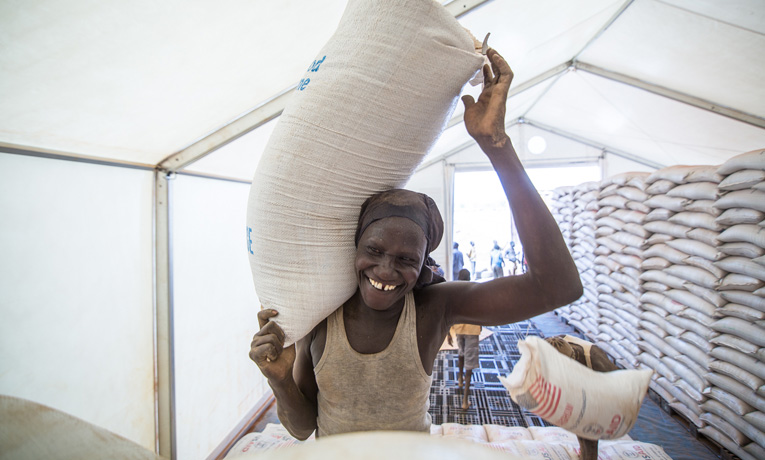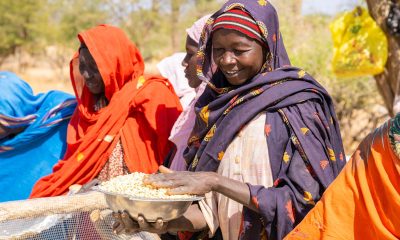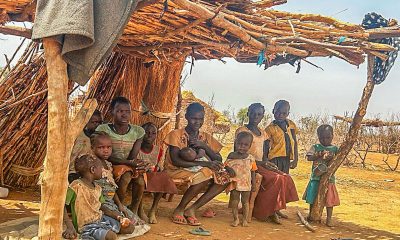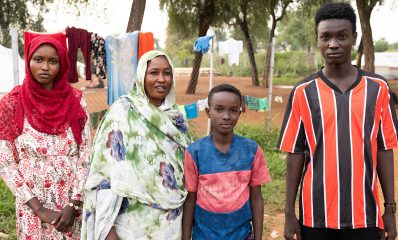In Yida Refugee Camp in South Sudan, Samaritan’s Purse staff members work diligently to gather enough food to feed everyone in the camp for the duration of the rainy season
By Adam Riddell, who manages food distributions in South Sudan
“… Taking the five loaves and two fish [Jesus] looked up to heaven and said a blessing and broke the loaves and gave them to the disciples to set before the people. And He divided the two fish among them all. And they all ate and were satisfied … And those who ate the loaves were five thousand” (Mark 6:41-42, 44, ESV).
I’ve always enjoyed reading about the miracles Christ did during His years of ministry. As someone who works in emergency food assistance programs, I really appreciate the miracle of feeding the 5,000. I understand Jesus’ compassion after seeing people’s hunger because I have seen it myself. I only wish I could feed the masses with the same ease Jesus did.
Feeding 5,000 people is no easy task, though next week we will do this in Yida Refugee Camp in the far north of South Sudan. To feed so many requires planning, incredible logistical capacity and forethought, and a large team to maintain order and ensure accurate ration distributions, plus a sea of paperwork to keep track of it all. Yet, Jesus did it with five fishes, two loaves, a few baskets, and a small team of disciples. He did so at a moment’s notice using materials that He could easily access. In Yida, we’re no miracle workers, but it feels like we recently saw a small miracle.

In Yida Refugee Camp, Samaritan’s Purse workers collected 15,000 metric tons of food to distribute over the next seven months.
This month the Samaritan’s Purse Food Assistant Team completed a monumental, two month long task of receiving, stacking, and storing nearly 15,000 metric tons of food aid. To put 15,000 metric tons into a more relatable figure, imagine 375 full-length tractor-trailers packed out with food. These trucks made the one week journey from South Sudan’s capital city, Juba, and carried vegetable oil, sorghum, yellow peas, salt, and nutrition supplements. The food is stockpiled and can feed 100,000 refugees for seven months, which is the projected duration of this year’s rainy season. From June to December, access to the camp is cut off because the roads become eroded, flooded, or too muddy to pass. Last year, Samaritan’s Purse and the World Food Program were forced to use aircraft to drop food to provide for the 70,000 residents in the camp.
It was a long, tiring two months, but now the camp’s 35 warehouses are full and, even if the roads deteriorate, there are abundant food stocks to keep the refugee population fed, happy, and satisfied.
Throughout the entire prepositioning activity, God was abundantly faithful to energize the team on busy days, keep things on schedule, and hold the rain until all food arrived. As our team occasionally sings in morning devotions, “To God be the glory, great things He has done.”

The food collected over the past two months will allow the camp’s 70,000 residents to have food for the duration of the rainy season.






